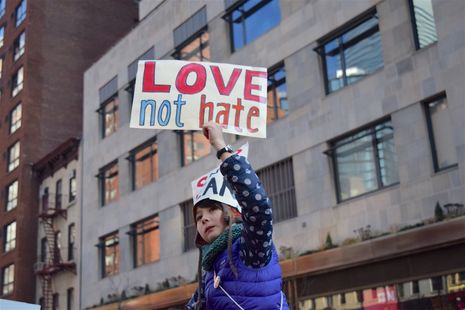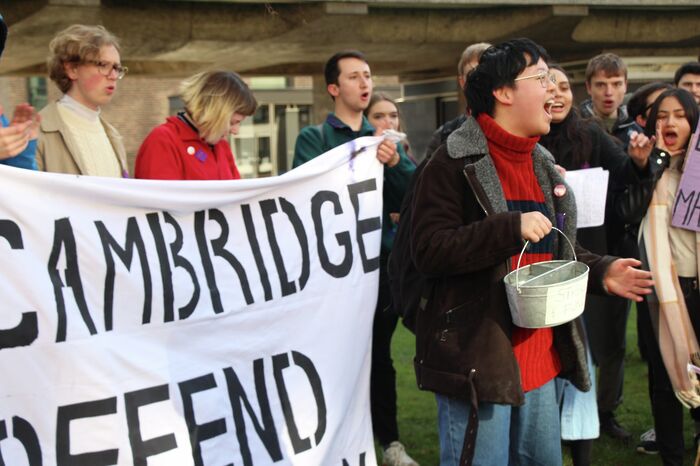Child activism and the search for a purpose
Ashna Ahmad considers the rise of child activists and reflects on her own childhood activism

It was the perfect political cliché. A slightly precocious, more-than-slightly socially awkward teenager sees, with her childhood-fresh pair of eyes, that there is injustice in the world. She seeks a break from the old; a brand-new system which will bring a miraculous end to the war, misery and destitution to which generations of adults have failed to provide a solution. Having not yet been struck by the harsh realities of life, she joins one of the hundreds of sectlets that form the rump that is post-1991 communist politics in the UK. After attending a few rallies, writing some newspaper articles and witnessing the famed communist party ritual of splitting (parties on the far-left divide like embryos), she becomes disillusioned and quits. This is the first step in her inevitable trajectory towards being a Tory with a City job and a Telegraph subscription by her mid-thirties.
My ardently Marxist 14-year-old self would have contested much of this assessment. Certainly, the idea that I was motivated by childish idealism frustrated me; I considered myself a scientific socialist, with a long moral nihilist phase (“statements about justice are simply expressions of class interest”), and I hated being patronised.
“Getting involved in activism is a great thing to do at a young age...”
It is debatable whether I can count myself as a ‘child activist’ at all, given how little I achieved. Definitely nothing remotely comparable to Greta Thunberg or Autumn Peltier. However, since child activists are making headlines, I think reflecting on the mentality which motivates them – and the extent to which the clichés are true – is an interesting exercise, and one that I might be able to provide a little insight on.
One cliché we hear about adolescence is the 'awkward phase': the stage of our lives, usually in our early teens, that we remember fondly, but not without a twinge of embarrassment. Awkward phases coincide with the idea of ‘fitting in’ becoming more important, teenage hormones kicking in and general existential angst, as we start to think more deeply about the world and where we fit.
At a time of so much uncertainty, having a comprehensive system to consult when you form opinions or make decisions can create the sense that, while everything is spinning around you, you have a reference point that you can fix your gaze on before you become dizzy. As a Marxist, the threshold at which straying from orthodoxy starts to make your belief system inconsistent is quite low.
Being on the autistic spectrum, I was perhaps more naturally inclined to embrace these systems as a source of reassurance than most people (which may also be part of the reason why Greta’s environmentalism is so absolutist). In general, though, the tendency of politically active young people to be more militant is about more than just idealism. It’s a result of the immense power of fixed ideologies to provide stability in a shifting environment, and few periods of life are more marked by constant change than adolescence.
Anyone who craves this sense of purpose in their politics is likely to develop a taste for it which extends to their personal life. After all, where is a reference point more useful than when thinking about something as complicated and contingent as our relationships with others? By this, I don’t mean that I tried to come up with a dialectical materialist analysis of how that cute boy at the school gate glanced at me (although knowing me, I probably did). I mean that being ideologically absolutist gave me a taste for the stability and fixed perspectives which becoming attached to an ideology provides.
This outlook becomes more obviously harmful when you look at how it affects your personal relationships. How many times have you been told to be yourself, live in the moment or not to worry about fitting in and pleasing people? Any piece of advice like these is telling you not to be dogmatic about defining yourself.
There is some inconsistency here: we praise child activists for being so militant and driven, yet the strength of their conviction, and the dogmatism which often accompanies it, may be a result of the very same impulses which teenagers are encouraged not to listen to when they are told to be themselves instead of trying to fit into a mould.
Getting involved in activism is a great thing to do at a young age – I certainly learnt a lot from it – and there is nothing wrong with being passionate. However, it’s worth noting that, despite living in a culture that is highly aware of ‘the awkward phase’ and regards the burning teenage desire to fit in as something to be ‘grown out of’, we celebrate child activists who may just be reacting to the very period of life we cringe at the most, in their own precocious way.
 News / Hundreds of Cambridge academics demand vote on fate of vet course20 February 2026
News / Hundreds of Cambridge academics demand vote on fate of vet course20 February 2026 News / Judge Business School advisor resigns over Epstein and Andrew links18 February 2026
News / Judge Business School advisor resigns over Epstein and Andrew links18 February 2026 News / Petition demands University reverse decision on vegan menu20 February 2026
News / Petition demands University reverse decision on vegan menu20 February 2026 News / CUCA members attend Reform rally in London20 February 2026
News / CUCA members attend Reform rally in London20 February 2026 News / Caius students fail to pass Pride flag proposal20 February 2026
News / Caius students fail to pass Pride flag proposal20 February 2026










